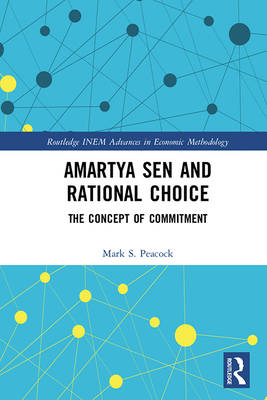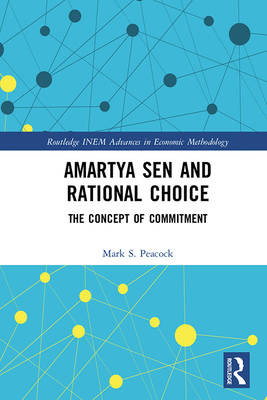
- Retrait gratuit dans votre magasin Club
- 7.000.000 titres dans notre catalogue
- Payer en toute sécurité
- Toujours un magasin près de chez vous
- Retrait gratuit dans votre magasin Club
- 7.000.0000 titres dans notre catalogue
- Payer en toute sécurité
- Toujours un magasin près de chez vous
Description
Are human beings motivated exclusively by self-interest? The orthodox theory of rational choice in economics thinks that they are. Amartya Sen disagrees, and his concept commitment is central to his vision of an alternative to mainstream rational choice theory. This book examines commitment as it has evolved in Sen's critique of orthodox rational choice theory.
The in-depth focus on commitment reveals subtleties in the concept itself as well as in its relationships with other concepts which Sen develops in his critique of rational choice theory, for example preference, sympathy, weakness of will, agency, personhood, social norms, rights, self-welfare goal and self-goal choice. The book provides a comprehensive understanding of commitment and offers novel interpretations of the term as a way of strengthening its plausibility. Broadly in support of Sen's conceptualization of rational choice, the book nevertheless reveals ambiguities and weaknesses in Sen's conceptual framework, and it reformulates Sen's concepts when doing so strengthens the claims he makes. The book also engages with critics of Sen and argues for the importance of commitment as a component in the theory of rational choice.
Spécifications
Parties prenantes
- Auteur(s) :
- Editeur:
Contenu
- Nombre de pages :
- 160
- Langue:
- Anglais
- Collection :
Caractéristiques
- EAN:
- 9780367188740
- Date de parution :
- 26-09-19
- Format:
- Livre relié
- Format numérique:
- Genaaid
- Dimensions :
- 157 mm x 236 mm
- Poids :
- 385 g

Les avis
Nous publions uniquement les avis qui respectent les conditions requises. Consultez nos conditions pour les avis.






